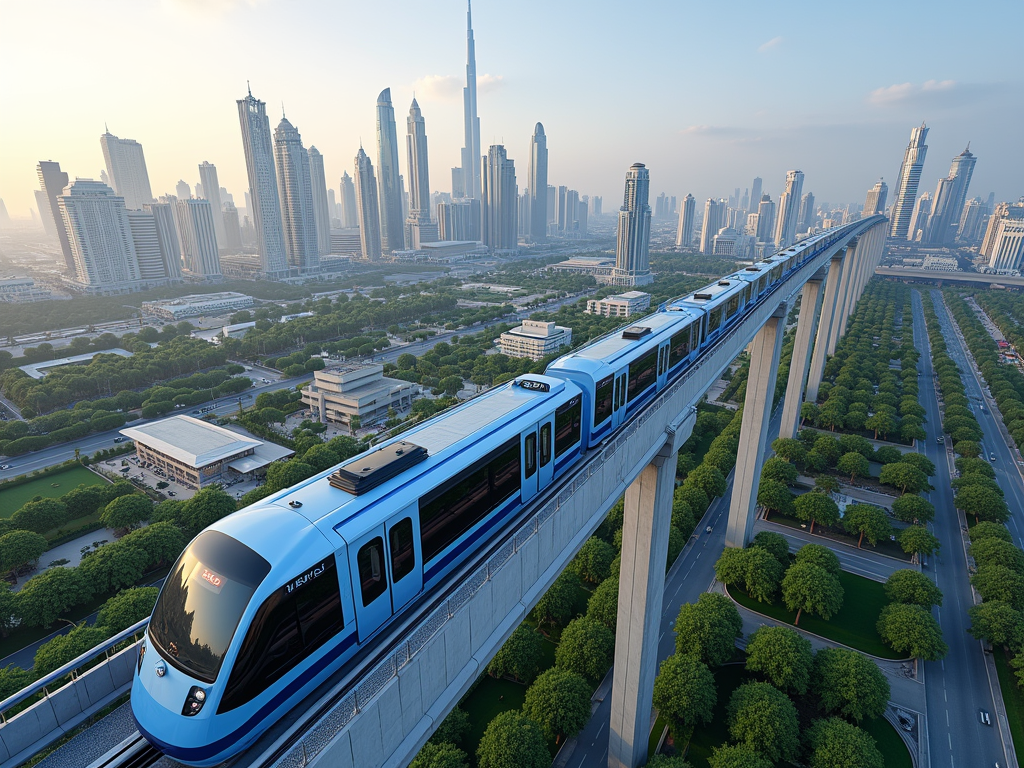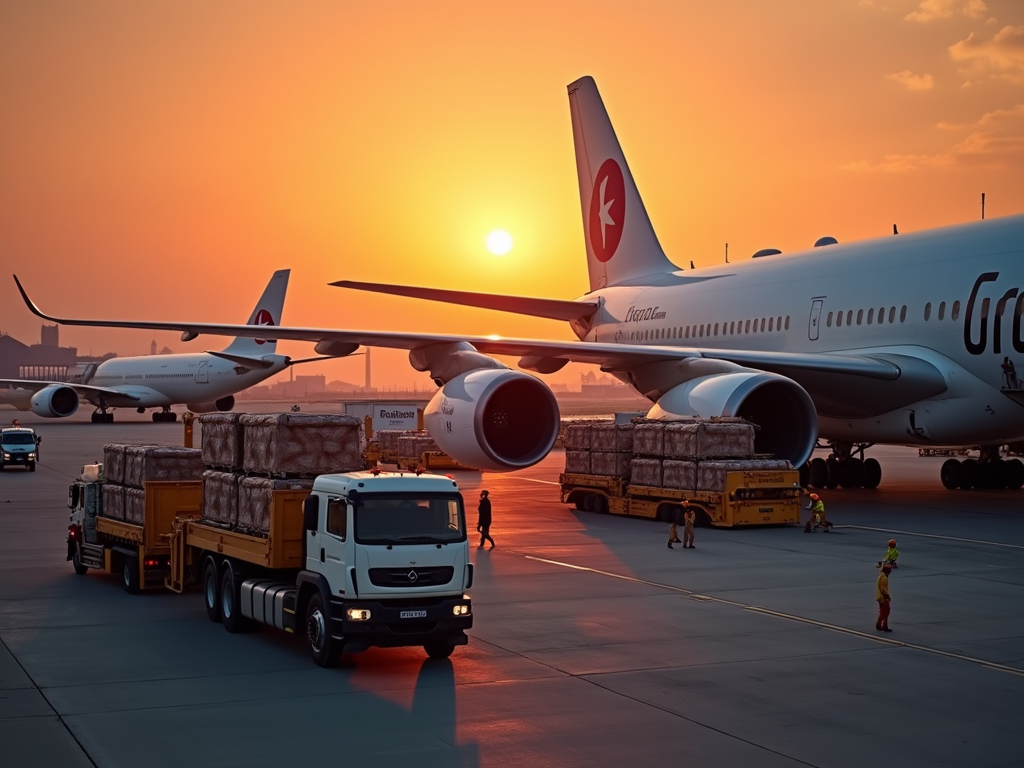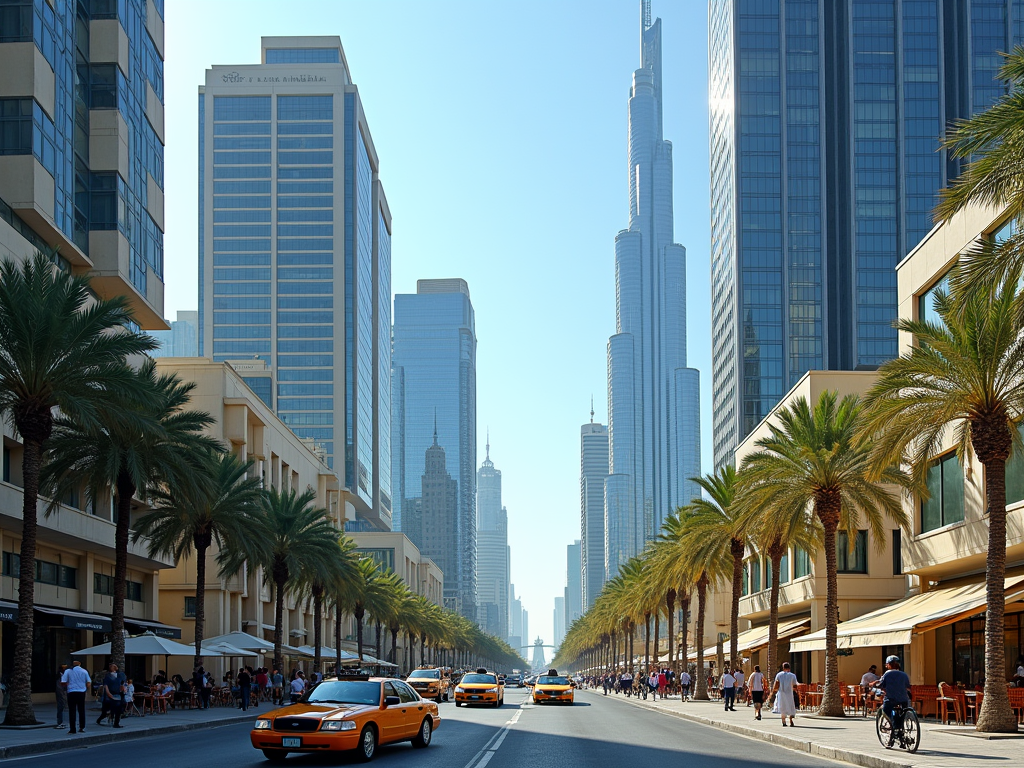Dubai has established itself as a global business hub thanks to its state-of-the-art infrastructure and comprehensive transport network. This dynamic city provides an environment that fosters economic growth and a seamless flow of goods and services. The infrastructure includes modern roadways, advanced public transit systems, and world-class logistics facilities that cater to various industries. This article explores how Dubai’s robust infrastructure and transport frameworks enhance business operations, attract foreign investments, and propel the local economy forward.
State-of-the-Art Infrastructure

Dubai’s infrastructure is a testament to its rapid growth and ambition. The city is equipped with sprawling business districts, cutting-edge office spaces, and technologically advanced logistic centers that accommodate diverse business needs. Major developments such as the Dubai International Financial Centre and the Jebel Ali Free Zone make it easy for companies to establish themselves in the region. Moreover, buildings are designed with sustainability in mind, ensuring that they are eco-friendly and cost-effective.
Key components of Dubai’s infrastructure include:
- Smart City Initiatives: Implementing tech-driven solutions to enhance urban living.
- Green Buildings: Constructing workplaces that minimize environmental impact.
- Premium Office Spaces: Offering a variety of rental options for businesses of all sizes.
- World-Class Warehousing: Facilitating efficient storage and distribution.
- Business Ecosystems: Creating clusters that allow businesses to thrive through collaboration.
Advanced Transport Network

Dubai’s transport network is a crucial factor in supporting the city’s burgeoning business landscape. The extensive road systems, including well-maintained highways and arterial routes, connect key areas of the city, easing the movement of goods and people. Additionally, the Dubai Metro offers efficient public transportation, ensuring that employees can commute easily. This connectivity is vital for businesses looking to access a talent pool and for managing supply chains effectively.
Furthermore, Emirates Airlines, based in Dubai, provides a significant advantage, as the airline operates from one of the world’s busiest airports, linking Dubai to over 150 destinations. The presence of logistics hubs at Dubai International Airport and Al Maktoum International Airport further enhances the city’s status as a global trade center. This interconnected transport system encourages businesses to expand their reach into international markets.
Dubai’s strategic location makes it an ideal logistics and trade hub for companies targeting the Middle Eastern, African, and Asian markets. The city’s infrastructure includes numerous free zones that offer tax incentives, reducing operational costs for businesses. Additionally, the ports—such as the Port of Jebel Ali—are amongst the busiest in the region, enabling imports and exports to flow seamlessly.
Other logistical advantages include:
- Efficient Customs Procedures: Streamlined processes that reduce delays.
- Access to Global Markets: Business-friendly policies that attract foreign investors.
- Advanced Supply Chain Solutions: Integrating technology for improved efficiency.
- 24/7 Operations: Round-the-clock services promote constant business activity.
- Public-Private Partnerships: Collaborative environments that drive innovation.
The Role of Technology in Business Operations
Technology plays an integral role in enhancing Dubai’s infrastructure and transport networks. The integration of smart technologies into transport systems allows for efficient traffic management and real-time data analytics, which supports logistics planning. Additionally, businesses can leverage these technologies for improved customer engagement and supply chain management. The government’s focus on promoting digital innovations has fostered an environment where new startup businesses can flourish.
Moreover, the proliferation of e-commerce has led to the establishment of advanced fulfillment centers, distribution networks, and last-mile delivery solutions. Companies now have access to comprehensive logistics resources, which reduce the time required to deliver goods to customers. Furthermore, digital payment solutions, mobile applications, and AI-powered customer service platforms enhance overall operations and efficiency for businesses, setting them on the path to success.
Conclusion
In summary, Dubai’s exceptional infrastructure and comprehensive transport network are instrumental in facilitating business operations and attracting investments. The city’s commitment to innovation, efficiency, and sustainability further strengthens its position as a top global business hub. With state-of-the-art facilities and strategic logistical advantages, companies can thrive in Dubai, contributing to the region’s overall economic growth.
Frequently Asked Questions
1. What makes Dubai an attractive business hub?
Dubai’s strategic location, advanced infrastructure, favorable tax policies, and access to international markets make it an attractive hub for businesses.
2. How does public transportation benefit businesses in Dubai?
Public transportation systems, like the Dubai Metro, provide easy access for employees and customers, improving overall workforce productivity and customer engagement.
3. Are there tax incentives for businesses operating in Dubai’s free zones?
Yes, businesses established in Dubai’s free zones benefit from various tax incentives, such as zero corporate tax and customs duty exemptions.
4. How does technology impact business operations in Dubai?
Technology enhances efficiency in logistics, customer engagement, and overall business management, offering companies a competitive edge in the market.
5. What transport facilities support logistics in Dubai?
Dubai offers an expansive transport network, featuring roadways, rail systems, airports, and maritime facilities, all of which facilitate efficient goods movement.
